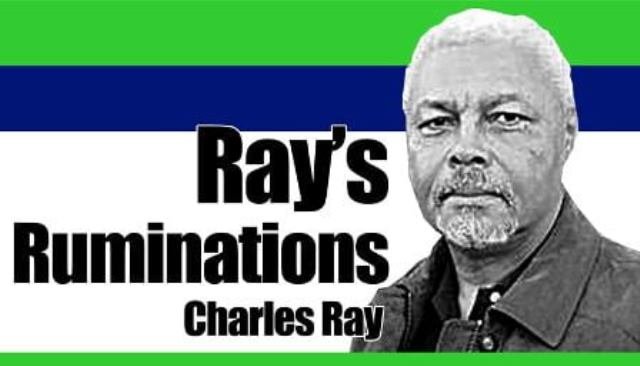
We all have a right to be proud of our cultural heritage, our family, or our particular social group, but there’s a danger when you take that cultural pride too far. Cultural arrogance can ruin friendships, sink business relationships, and even lead to misunderstandings between nations.
On a personal level, cultural arrogance manifests itself in a number of ways, all of them extremely irritating. For example, the tourist who travels to an exotic destination and then laments that the locals don’t speak his language is one that I’ve encountered many times during the thirty years I served as a diplomat. This kind of person, by the way, is the very person who insists that foreigners coming to his country also learn his language. With people like this it’s a no-win situation. I’ve lost count of the times, too, when people like this came to the consulate, or in one case embassy where I was the ambassador, took one look at my brown face and asked to speak to an American. This, despite the fact that I had just spoke to them in fairly literate English and didn’t look at all like the local employees working with me. When I worked in Chiang Mai, Thailand, I even had one gentlemen, after I’d turned his girlfriend’s visa application down, wrote a letter of complaint to the embassy about the big, curly-haired Thai guy who was so rude as to not believe his girlfriend’s reason for applying for the visa.
The examples of cultural arrogance are sometimes hard to believe. Once I had a couple visiting my house (I won’t identify them or their nationality because that’s irrelevant) and the wife insisted that when she came to our house we had to serve her national food because she just could not eat ‘foreign’ food. When I asked her what she would serve me when I came to her house, her reply was ‘my national cuisine, of course.’ That is not made up, it actually happened. Needless to say, she was struck from the invitation list for everything but our national day celebration. I had to invite her and her spouse to that. But I got my revenge on her. At my national day reception, the food was typical American July 4th fare, hot dogs, pizza, hamburgers, ribs, etc. She left hungry and I was secretly smiling. I also got some dirty looks from her when we were invited to her husband’s national day reception, especially when she saw me thoroughly enjoying her national dishes.
I teach classes occasionally for a Washington, DC-based academy that provides training in diplomacy for non-diplomats, and one of my classes is on cultural diplomacy, and its importance in developing effective international relations. A significant portion of my lecture is devoted to the negative impact of cultural arrogance. Cultural arrogance, a form of ethnocentrism, is the attitude that one’s own group’s culture is superior to all others, and the others are often denigrated.
The negative impacts of cultural arrogance can range from the funny and trivial to the really serious. There is one example that is often used in college business and marketing classes that illustrate the idiocy of cultural arrogance. General Motors wanted to create a small economy car that would sell in the US and Mexican markets. The car they created was the Nova, which sold fairly well in the United States, but it took them a while to understand why Mexicans weren’t buying it. In Spanish, no va means ‘doesn’t go. Would you buy a car if its English name was Doesn’t Go? I think not.
It’s all too easy to slip onto a culturally arrogant attitude. We all probably do it from time to time, like the tendency to raise our voice when we’re speaking to a foreigner who doesn’t understand us, as if talking louder will make our babble intelligible.
It’s okay to be proud of your culture, but never forget that your culture is just one of many in a sea of cultures, and from the point of view of the person you’re denigrating because he or she doesn’t speak your language or like the foods you like, yours is no better than his. – NWI




